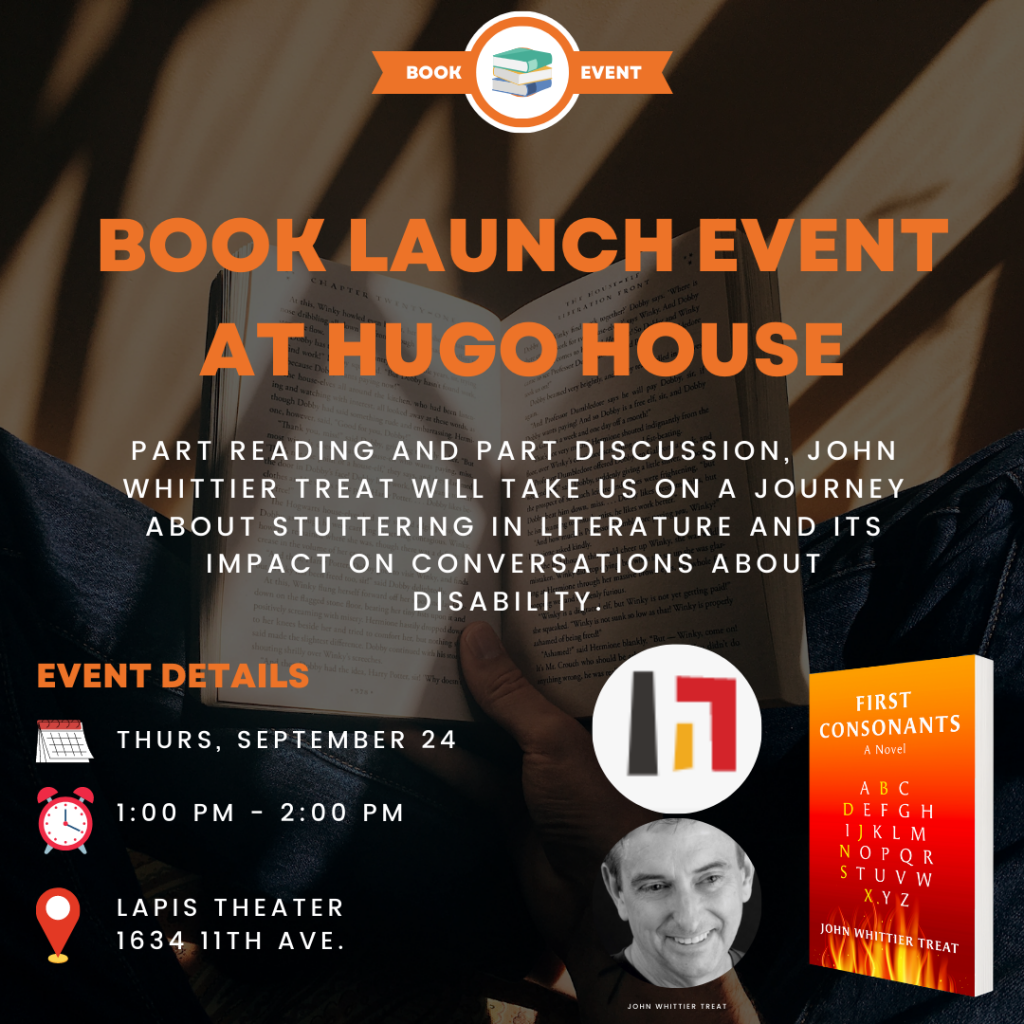I have been working on this essay for three days now. I have alternately been profound and poetic like Toni Morrison, curmudgeonly and erudite like Jonathan Franzen, and curmudgeonly and witty like David Sedaris. Oh, the beauty of my paragraphs! They make me dance! The points made are salient and insightful, the narrative flowing, my examples vivid — though I did wonder for a brief moment whether my writer friends would be displeased that I used them in my cautionary tales. And then I decided to put those words on paper. None of those eloquent and melodious paragraphs pulsing in my brain were forthcoming.
Sweat dripped from my forehead until the empty page in front of me was as wet and craterous as the top of a snow-capped mountain after a thunderstorm.I grabbed some paper towels from the restroom, wiped my forehead then took my pen to a fresh sheet of paper. Finally, I wrote a word: “My.” I scratched it out. My single word birthed then aborted. My. No idea where that was going. Come on beautiful sentences, appear. I wrote three more words then scratched them out. Then four more: “The use of words.” What the hell does that mean? The use of words. Then eloquent fantastical LeVan fled. Most likely to Café Loup in New York for a pomegranate martini and to pontificate on Carl H. Claus’s “The Made-Up Self: Impersonation in the Personal Essay.”Blue Collar LeVan is the one moving my Staples Comfort Stic. 1.0. That’s a pen — a cheap pen, for you New Schoolers.
I go Old School on my first draft. Blue Collar LeVan is the one riding the stop-start of my thoughts; enduring the interruptions of my elderly, ill mother who wants to know what day it is and does she have anything to do today (“Wednesday” and “No.”); Blue Collar LeVan’s the one who has to forget we just received an email from the magazine we have been waiting to hear from for eight months rejecting our essay. He can’t go “Oh woe, oh woe” like Eloquent Fantastical LeVan would; he has work to do. He sighed for a moment, then lowered his head and continued working.
Eventually, some words tumble out. Occasionally, as he writes, he wonders: What will this essay be about? Will one theme drive the narrative? Will this be a faux stream-of-consciousness essay that I will spend days working on to make it appear that way? He treats those questions like pesky flies buzzing over his head. He swats them away then focuses; he puts in the time. He knows that unexpected thoughts and motifs will mysteriously appear on the page if he sticks to it.
Still, those occurrences always surprise him. He doesn’t anticipate results; Eloquent Fantastical (EF) LeVan does. Blue Collar (BC) LeVan will reach a Zen state transfixed on what has emptied out of his Staples Comfort Stic. 1.0. Later, he will decipher his bad penmanship, excitedly shift words and paragraphs around, scratch out sentences he doesn’t think fit, search his mind and the thesaurus for more accurate words, and add missing and connecting sentences over and over and over until he is forced by deadline to release his work. (This guy means business — he turned off the Internet. When EF LeVan started struggling, he started reading an NPR article on “Orange is the New Black” that he found on Facebook.) Tomorrow nearing midnight — the editor said: “The 15th. She didn’t say: “The 15th during business hours” — BC LeVan will disappear and EF LeVan will write our bio, select a flattering picture, and email our opus.
This is work despite all the inferences from my non-writer relatives and friends that it’s not. These people are wise enough to know they can’t do it but think it’s easy for me; that on the page, I am in the same state I am in when I’m walking around the house creating beautiful paragraphs in my head. They don’t know about BC LeVan. That even when he is pushing for the simplicity of a conversational tone, HE WORKS HIS ASS OFF. They don’t know that after mentally creating those lovely sentences, EF LeVan experiences a period of absolute agony until BC LeVan sits down and works. This was the agony that sent me fleeing to Facebook. I was in torture until I wrote those first crappy words on that scary blank page.
That blank page is scarier than no voting rights laws. Scarier than the idea of President Clarence Thomas. With BC LeVan itching to take over, I practice accelerated avoidance. Fifteen to twenty minutes of agony and it’s time to roll. I’ve done enough avoidance over the first two days. Like all brave ones before me, I faced my fear and wrote those first words: “My” then “I’ve been insightful.” (Hunh?)
Dang. Where was I?
Forty-five minutes ago, my mother screamed from downstairs, “I CAN’T GET THE TV TO WORK!” I stopped working and went downstairs, hit the remote and voila! Then I had to decide which program she would watch — Dr. Oz’s latest obsession with poop or a “House Hunters International” episode on Torino, Italy. Then the Jehovah’s Witnesses were at the door. (Glad I wasn’t curt with them — one was my neighbor’s sister.) While I was downstairs, I decided to cook breakfast — it was 11:45. Appreciative that my mother slept late and allowed me to get through my agony and get a few words down before interrupting, I bounced around the kitchen cooking sausage, Egg Beaters, and De Wafelbakkers’s Buttermilk prepared pancakes, perfect sentences once again playing in my head. This time they had a different voice — It sounded like the voice that I am using here. When I returned to my writing, there was less “birth, abort” but I was still far, far away from the flowing, intelligent, and witty sentences that accompanied me in the kitchen. (I mean Chicago to China far.)
No sense getting upset at the interruptions. Certainly, four or five uninterrupted hours of writing are preferable but situations are what they are. I can grumble or I can take the next 15, 25, 30, 60, minutes and let BC LeVan do his thing. We are both grateful for the successful writers in Poets & Writers magazine who have shared their tales of writing on subways, on lunch breaks, to the sounds of screaming babies, and around curious toddlers tearing the room apart. My mother who is downstairs eating breakfast has dementia. That is my tale. Eventually, I will go downstairs, sit in the kitchen nearby and write, the Home and Garden Channel blaring in the background. My mother will interrupt me eight times in an hour asking me “What day is it?” “Do I have anything to do today?” as if she is asking it for the first time. For her, she is.
“I’ve done enough avoidance over the last two days.” Is that true? I used to think of the time spent in my head as procrastination. I would berate myself: You are wasting time. When are you going to get together? Not any more. I may joke about EF LeVan but his work is essential. He ponders, searches, rejects, imagines, and considers which approach to take. This is Step 1 of my writing process. Step 2 is getting some words down. No more being despondent because of my inability to transcribe what’s in my head. Instead, I struggle knowing at the end of it, the very end (two days? ten years?), something unique will birth, something that reflects my emotional and intellectual DNA.
Some naysayers would say: You waste time. You could have started two days ago. People have different ways of working. Everyone has to find their own way. That’s done through trial and error. Through listening to my intuition. I have learned when EF LeVan’s done, he will turn the process over to his blue collar brother. It works for me.
Not all my births are the same. Once, a grieving mother impulsively insisted I write a poem for the back of her son the poet’s funeral program in twenty minutes; she had to turn the document over to the printer.
“It takes more than twenty minutes,” I gently told her struggling to contain the freaking out EF LeVan was doing.
“Sit down and think about him,” she told me. “I know you can do it.”
I’m glad she did. EF LeVan got five minutes to focus on the mischievous teen with the sunshine eyes I used to tutor then it was time to roll up my sleeves. And I did it. To my surprise, in twenty minutes, I had written a rhythmic poem that captured the personality of the young man I had mentored. I shouldn’t have been surprised; that is how the two LeVans roll.
For my writing here, I wasn’t sure what I wanted to say so EF LeVan tossed different ideas around for two days then turned the job over to BC LeVan knowing that eventually what I wished to say would reveal itself. It always does, though sometimes it can take years. I’ve been working on my book project for three years and recently had major breakthrough due to some feedback from my non-fiction workshop group at the Lambda Literary Retreat. I allowed the Blue Collar part of me to listen to my colleagues; EF LeVan is more ego-driven — he wouldn’t have been able to take it. I removed my ego, giving myself the freedom to be bad, suppressing the impulse to defend myself, realizing this is all part of the process, that my responsibility in this situation is to have good taste, to know what recommendations to say “yes” to and know what to dismiss. I spread the fourteen manuscripts covered with notes my colleagues gave to me across my bed and went from one to the other. I learned long ago that others’ emphatic ideas on how to fix the problems in my writing usually don’t work but they do point me to what isn’t working, and force me to get out of the limited world in my head and think of something else, making my project better.
After going over all my notes, I made a decisions for the revision I was supposed to share with my group in two days. EF LeVan pondered for a day then asked the instructor if he could write a short essay on why he wanted to write the book instead. “I’ve been working on it so long. I’ve forgotten why I’m doing it.” She said, “Yes.” (If you ever have the opportunity to have writer Sarah Schulman as your instructor, jump on it.) After Sarah consented, one of my fellow writers sat on a bench with me at the top of a hill looking down on the surrounding mountains and the 405 freeway and listened as I struggled to articulate my story. Then it was time to switch gears. From 10:30 p.m. to 2:00 a.m., after having a few glasses of wine, I wrote out what I was attempting to do in a problematic flashback dissecting every paragraph, listing my intentions, methodically cutting out sentences and paragraphs, shifting paragraphs from page six to page one. I read my notes on why I wanted to write my book then wrote an entirely new beginning. All this was done in a computer room while a group of writers sat at the table behind me laughing, eating, and drinking. (EF so envied they were done and wanted to join them — he’s a social animal! But BC had work to do!)
The time between pondering and getting those first words on the page is tortuous and can be quite debilitating if I stay in that place too long and forget that struggling is part of the work. Mostly, I’ve learned to be consciously aware of what I’m doing instead of succumbing to my neurosis. I can’t believe you’re wasting all this time. You’re a fraud. You should be working. Or worse, I think it’s cute — I’m doing what writers do — and let this go on interminably embracing my conduct as the ritual of a misunderstood tribesman. In the end, serious writers write. Pondering is part of the process but until some scratches are on that paper, you don’t have anything.





